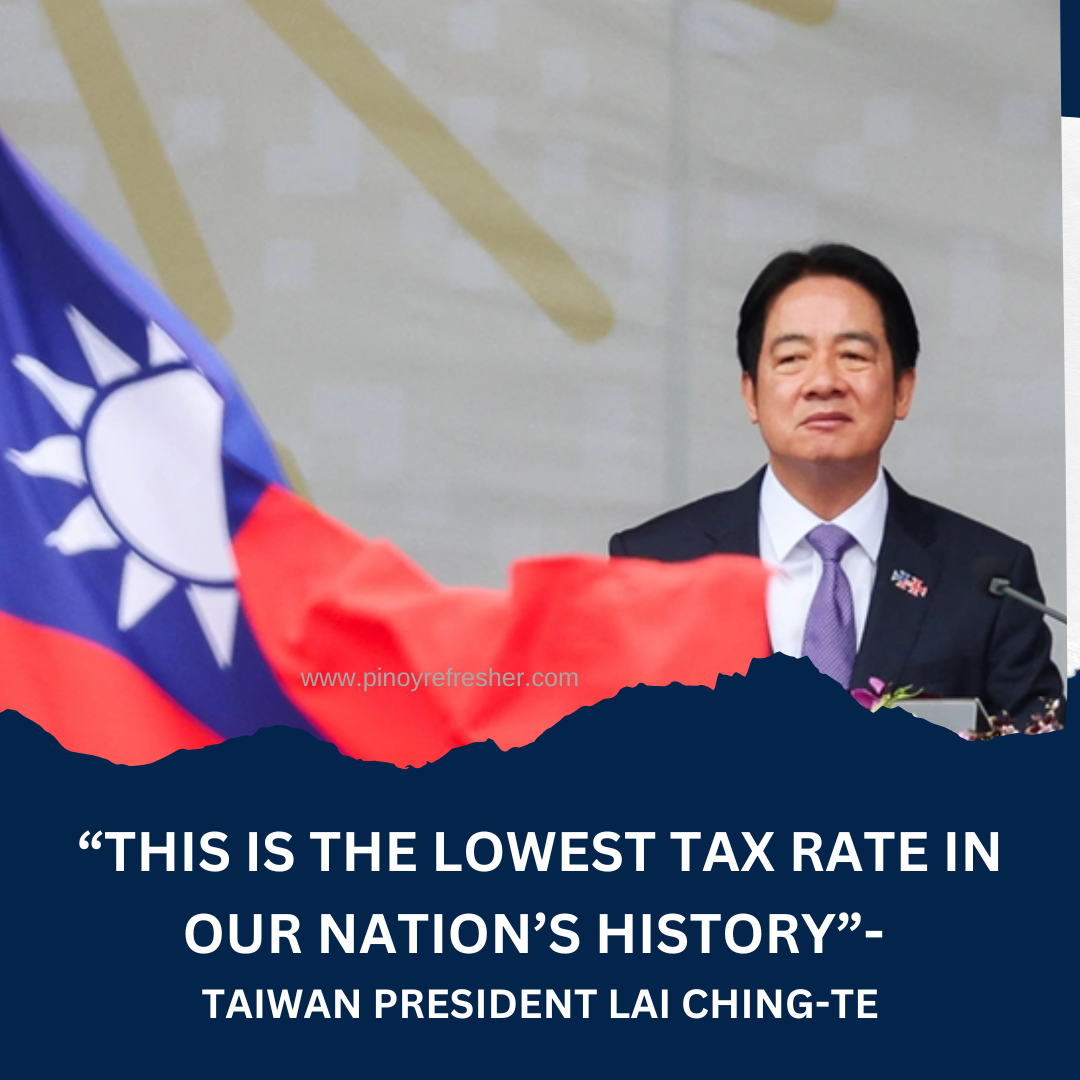MIAOLI COUNTY, Taiwan — President Lai Ching-te delivered uplifting news during his visit to Zhunan Township, Miaoli County, on Sunday, declaring that next year will mark the lowest tax levels in Taiwan’s history.
According to Lai, individuals earning NT$50,000 per month—equivalent to NT$620,000 annually—will no longer need to pay income tax. He further explained that households with children or elderly dependents will also benefit from expanded exemptions. For example, a family with two children under five years old will enjoy a tax-free threshold of NT$1.641 million annually, while families supporting two elderly relatives can earn up to NT$2.12 million without paying taxes.
“This is the lowest tax rate in our nation’s history,” Lai stressed, noting that 40% to 50% of Taiwanese citizens already do not pay taxes, with the top 1% of income earners shouldering 40% to 50% of the tax burden. He praised high-tech companies for contributing significantly to the tax system, saying their success helps sustain public welfare programs.
Focus on Security and Economy
Lai emphasized that his administration continues the groundwork laid by former President Tsai Ing-wen. He cited investments in national defense, including foreign arms purchases and the development of a domestic defense industry, with the goal of producing weapons locally to strengthen Taiwan’s security and create jobs.
On the economic front, Lai highlighted Taiwan’s robust performance:
-
Under Tsai’s leadership, growth averaged 3.2% annually, with the stock market climbing from 8,000 to over 23,000 points.
-
Since Lai’s presidency, the economy has grown even faster, recording 4.84% growth in Q4 last year, 5.48% in Q1 this year, and 8% in Q2, while the stock market surged past 25,000 points.
-
The unemployment rate dropped to 3.2%, the lowest in nearly two decades.
Education and Welfare Investments
With strong revenues, Lai pledged to reinvest in people through education and social welfare programs:
-
Tuition-free education for high school and vocational school students.
-
Annual NT$35,000 subsidies for private university students.
-
Targeted support for low-income and lower-middle-income households.
-
Expansion of childcare programs for ages 0–6, along with Long-Term Care 3.0, which now operates over 10,000 service centers nationwide.
Lai stressed that education remains the foundation of Taiwan’s future, ensuring that no child is left behind due to financial constraints. “Only by nurturing more talent can Taiwan continue to prosper,” he said.



